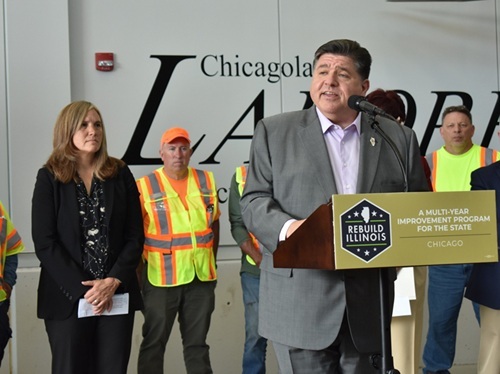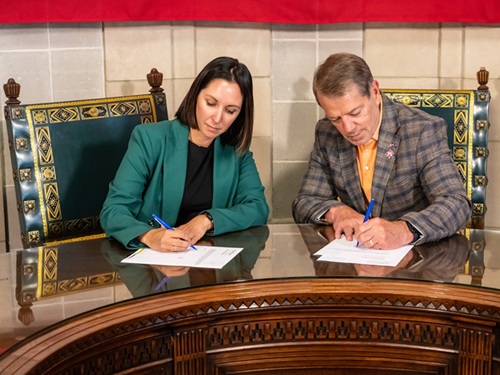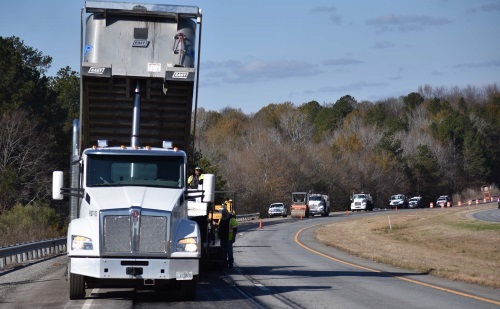Georgia recently sold $1.133 billion in two different series of general obligation bonds that will in part fund new transportation projects as a way to help bolster economic growth for the state.
[Above photo by the Georgia DOT.]
The largest amount of funding from those bond sales provides more than $378 million for local and state K-12 school projects, with the second biggest tranche of funds – more than $302 million – supporting Board of Regents projects for the University System of Georgia.
The Georgia Department of Transportation receives the third largest amount from the bond sales – more than $152 million – to fund a variety of road, bridge, and rail projects.

“This very successful bond sale allows us to continue to invest in critical renovations and repairs of capital projects all across the Peach State,” noted Governor Brian Kemp (R) in a statement.
“[It] ensures previous investments in the state’s existing facilities are preserved and that the facilities continue to meet both current and future needs of citizens, support economic growth, and provide job opportunities within Georgia’s construction industry,” he said. “By maintaining the state’s existing infrastructure facilities and renovating them to meet the needs of tomorrow, we can ensure that those facilities contribute to our state’s long-term prosperity and that prior investments were made well.”
That money will also prove beneficial to changes the Georgia DOT made in October 2019 to its Major Mobility Investment Program or MMIP.

Those changes include the addition of a slew of highway projects to an effort described by the agency as “an ambitious program” to “build a better Georgia” through enhanced mobility and safety, fueling economic growth, and improving quality of life for state residents.
“As the MMIP has developed and design work has progressed, we’ve evaluated how we are delivering the program and refined it to advance six improvement projects along I-285,” explained Russell McMurry, commissioner of the Georgia DOT, in a statement at the time.
“Advancing these improvement projects, which were already part of the MMIP, will bring improvements to our region and local communities sooner and help mitigate disruptive construction congestion during the major express lanes’ construction,” he said.
 States
States
Illinois Unveils Historic $50B Infrastructure Program
October 10, 2025 States
States

